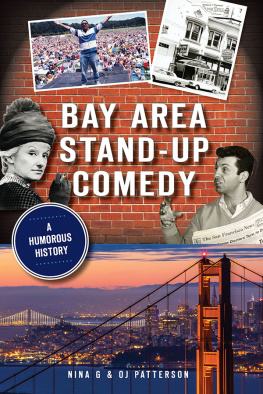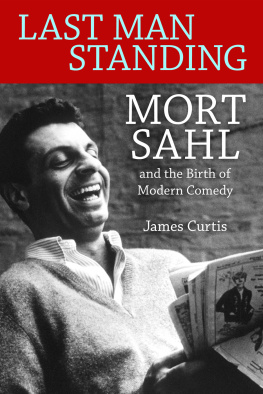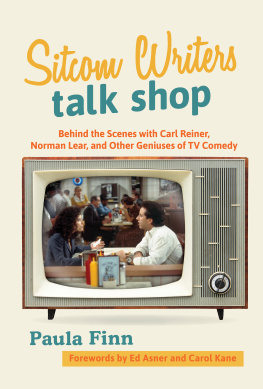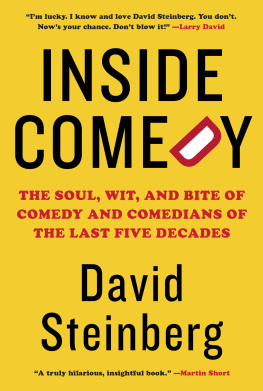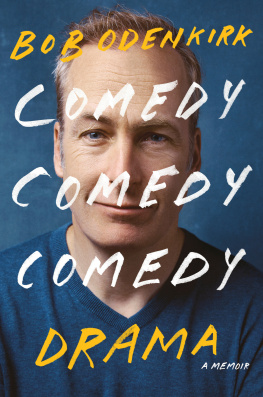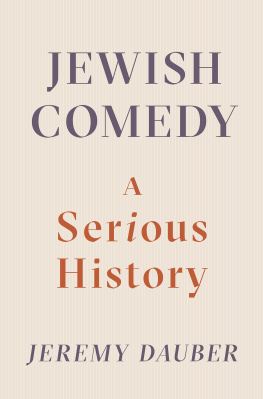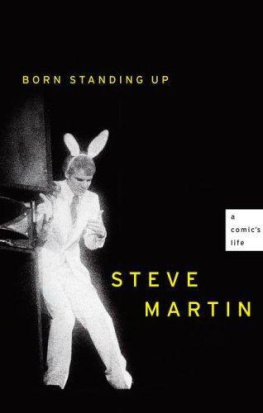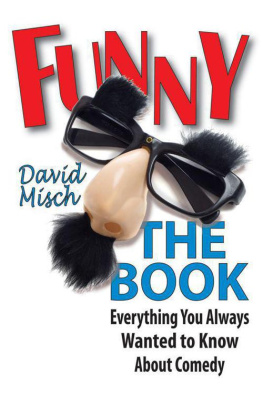
DANGEROUSLY
FUNNY
THE UNCENSORED STORY OF
THE SMOTHERS BROTHERS
COMEDY HOUR
DAVID
BIANCULLI

A Touchstone Book
Published by Simon & Schuster
New York London Toronto Sydney

| Touchstone
A Division of Simon & Schuster, Inc.
1230 Avenue of the Americas
New York, NY 10020
www.SimonandSchuster.com |
Copyright 2009 by David Bianculli
All rights reserved, including the right to reproduce this book or
portions thereof in any form whatsoever. For information address
Touchstone Subsidiary Rights Department,
1230 Avenue of the Americas, New York, NY 10020.
First Touchstone hardcover edition December 2009
TOUCHSTONE and colophon are registered trademarks of
Simon & Schuster, Inc.
For information about special discounts for bulk purchases,
please contact Simon & Schuster Special Sales at
1-866-506-1949 or business@simonandschuster.com.
The Simon & Schuster Speakers Bureau can bring authors to your live event.
For more information or to book an event contact the Simon & Schuster
Speakers Bureau at 866-248-3049 or visit our website at
www.simonspeakers.com .
Designed by William Ruoto
Manufactured in the United States of America
10 9 8 7 6 5 4 3 2 1
Library of Congress Cataloging-in-Publication Data
Bianculli, David.
Dangerously funny / by David Bianculli.
p. cm.
Includes bibliographical references and index.
1. Smothers Brothers comedy hour. 2. Smothers Brothers. I. Title.
PN1992.77.S63B33 2010
791.4572dc22 2009036843
ISBN 978-1-4391-0116-2
ISBN 978-1-4391-0953-3 (ebook)
Permissions on page 383.
To Tom and Dick Smothers,
for their trust, their cooperation,
and especially their patience
Contents
Introduction
Six months after the tragic events of 9/11, at the US Comedy Arts Festival in Aspen, Colorado, five defiantly outspoken performers were saluted for their often costly efforts to exercise their First Amendment rights as comedians. One was Bill Maher, who lost his ABC latenight talk show Politically Incorrect after remarking of the Al-Qaeda terrorist hijackers who commandeered passenger airliners and steered them into the World Trade Center and the Pentagon, Staying in the airplane when it hits the buildingsay what you want about it, its not cowardly. Another was stand-up comic and civil rights advocate Dick Gregory, who not only challenged segregation by becoming the first black comic to headline in all-white nightclubs, but also demonstrated alongside Martin Luther King Jr. and Medgar Evers in history-making confrontations in Montgomery and Selma. Still another was George Carlin, whose infamous Seven Words You Can Never Say on Television and Filthy Words comedy album routines sparked a free-speech battle that went all the way to the Supreme Court. And rounding out this handful of brave, bold humorists were Tom and Dick Smothers.
Significantly, the Smothers Brothers received their Freedom of Speech Award from comic David Steinberg, whose controversial mock sermons on The Smothers Brothers Comedy Hour played a key part in having that variety show yanked and the brothers fired, despite three successful seasons on CBS from 1967 to 1969 and an announced renewal for a fourth.
The most innovative variety show on television shut down because of political pressure, Steinberg told the audience in Aspen that night. But the Smothers Brothers got their revenge. Never giving up, they sued CBSand they won. And they forever became prominent symbols in the fight for free speech.
Accepting the award, Tom Smothers joked, Of course, many of you recognize the fact that we are not the original Smothers Brothers. Im sure they would have loved to have been here to receive this award. But the original Smothers Brothers passed away in 1969.
As jokes go, that one cuts very close to the bone.
On the surface, its patently ridiculous. The Smothers Brothers are, of course, the same siblings who began performing as folk satirists in 1959, and whose half-century career has outlasted almost all comic teams on stage, screen, and television. Tom, who plays guitar and unleashes elaborate fibs and heated emotional outbursts, and Dick, who plays bass and acts as the grounded and weary straight man, have a history as a comedy team that covers more years than the Marx Brothers, Stan Laurel and Oliver Hardy, Bud Abbott and Lou Costello, Dean Martin and Jerry Lewis, Dan Rowan and Dick Martin, and even George Burns and Gracie Allen.
In another way, though, Tom was being painfully honest. Part of the Smothers Brothers did die when CBS wrested their show away from them. Oh, they were vindicated in court, proving that they had not violated any terms of their agreement in providing shows for the network. And over the years, they starred in several subsequent TV showcases, including a brilliant run of reunion specials and series in the 1980s for CBS, the very network that had shunned them two decades before. In addition, they never failed to find steady work in nightclubs.
However, by becoming unexpected martyrs to the cause of free speech, the Smothers Brothers lost their most influential national TV platform just when that freedom mattered the most. Like Elvis Presley when he was shipped off to the army, or Muhammad Ali when he was stripped of his heavyweight title for refusing to fight in Vietnam, the Smothers Brothers were nonconformist iconoclasts, pop-culture heroes yanked from the national spotlight in their prime. Muhammad Ali became the champ again, and Elvis returned to record many more number-one hits, but Tom and Dick Smothers never again enjoyed the influence or mass popularity of The Smothers Brothers Comedy Hour. In terms of introducing and encouraging new talent, pushing the boundaries of network television, and reflecting the youth movement and embracing its antiwar stance and anti-administration politics, the show was, quite literally, their finest Hour.
What, exactly, made the Smothers Brothers so important a guiding force in the 1960s? Mostly, they were in the right place at the right time, reacting to the 60s as events unfurled around them. They were the first members of their generation with a prime-time pulpit, and they used it. Each season, the average age of their writing staff got younger, and the satiric edge of the material being televisedor censoredgot sharper. Yet in an era when most families still watched television together, in the same room on the same TV set, the greatest and most impressive achievement of The Smothers Brothers Comedy Hour was that it spoke to and attracted young viewers without alienating older ones. With its humor, guest list, and high caliber of entertainment, it bridged the generation gap at a time when that gap was becoming a Grand Canyonlike chasm.
The Comedy Hour introduced fresh talentfrom in-house future stars Pat Paulsen and Mason Williams to such emerging rock groups as Buffalo Springfield, Jefferson Airplane, and the Whowhile making room for veteran stars from movies, TV, even vaudeville. On one show, Kate Smith shared billing with Simon and Garfunkel. Another show featured Mel Torme, Don Knotts, and Ravi Shankar. Musicians came on not to perform their old or current hits, but to unveil new onesa bold departure from established practice. The Beatles even provided the brothers with a US exclusivethe videotaped premiere of Hey Judeand in the middle of the Smothers Brothers battles with the CBS censors, George Harrison showed up in 1968 as a surprise guest to offer moral support. Whether you can say it or not, Harrison urged them on the air, keep
Next page

